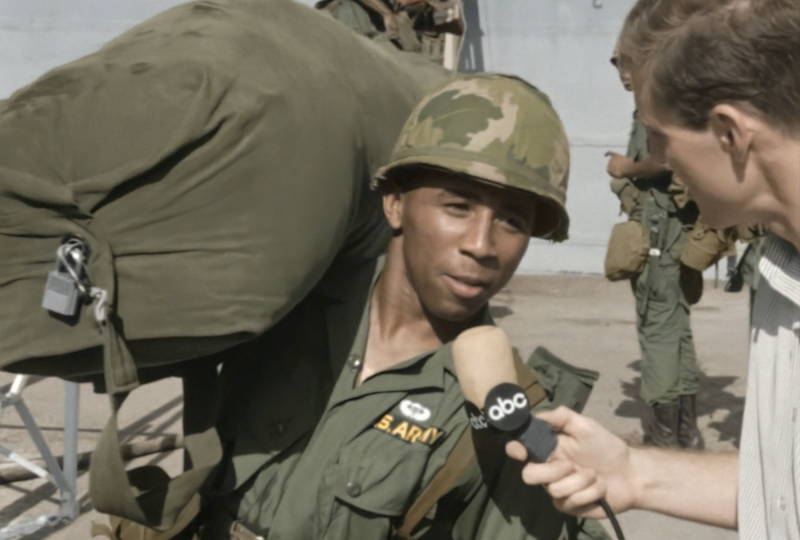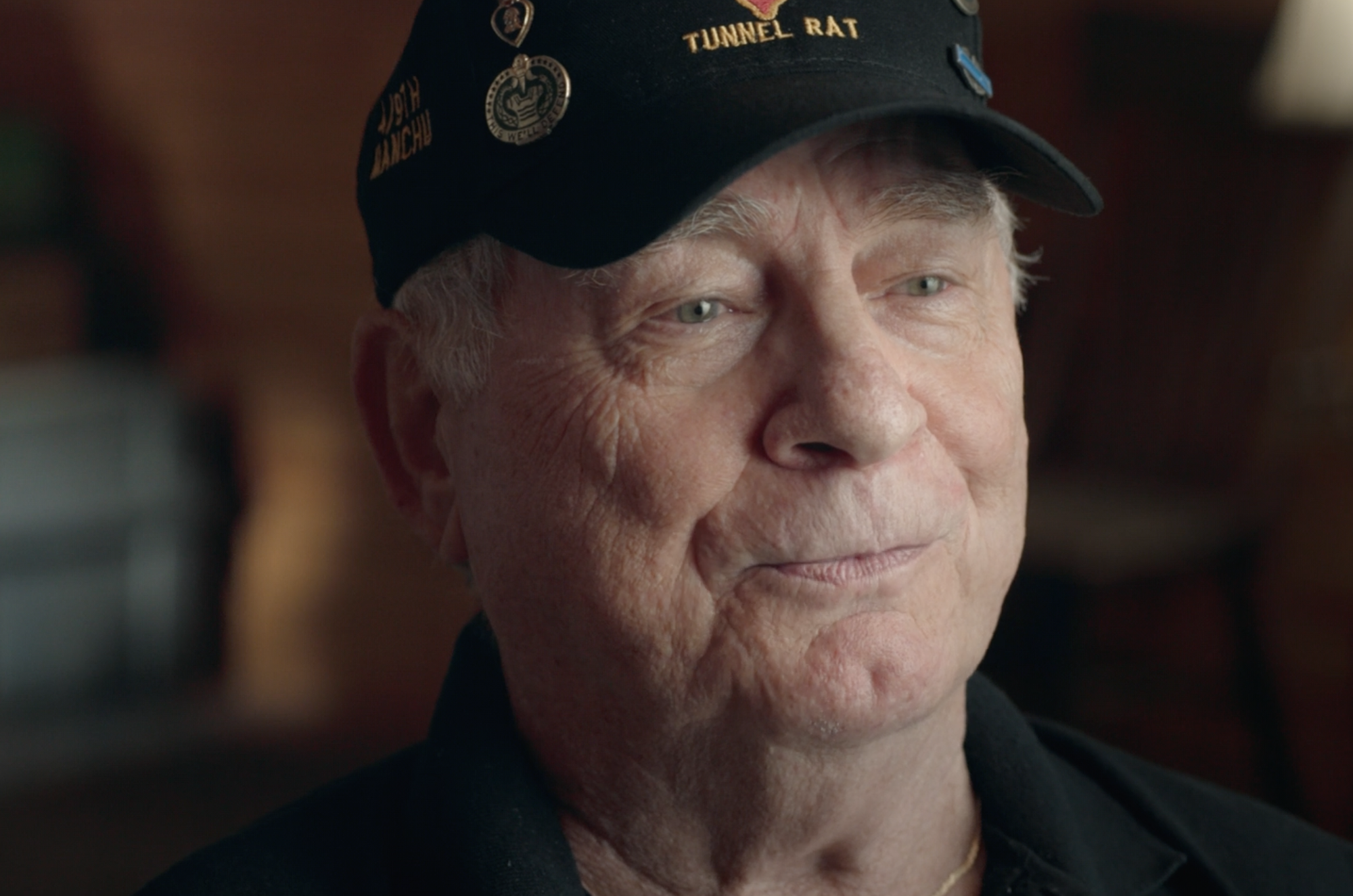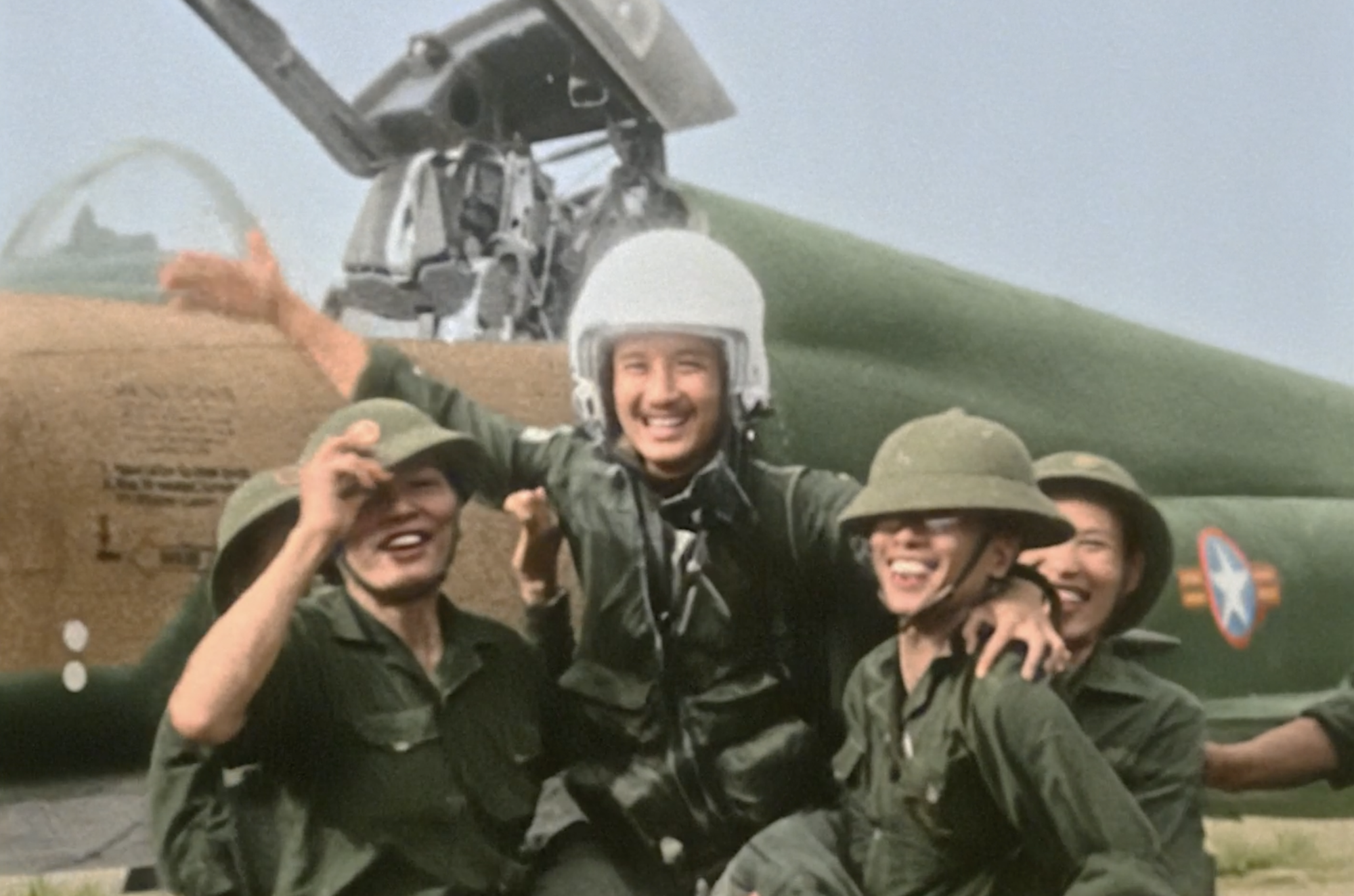There is a formula all too often applied to documentaries about wars. Officious voiceovers recount political machinations, decisions of military leaders, strategic movements on the battlefield and loss of life conveyed in numbers. Maps flash on screen. Explosions sound. But the new Apple TV+ series Vietnam: The War That Changed America takes an altogether more personal approach.
New Apple TV+ Documentary ‘Vietnam’ Gets to the Beating Heart of a Cruel Conflict

Though the six-part series provides a clear and informative overview of key moments in the war (Ethan Hawke narrates), it never once takes its eye off the humanity caught at the center of the conflict. This is a story primarily told by American veterans, Viet Cong fighters, civilians, journalists and far-away family members who all found themselves navigating the chaos. It is their willingness to speak bravely of both the worst things they’ve ever done and their deepest vulnerabilities that makes Vietnam so consistently compelling.
As much as America already knows about the Vietnam War, many of the first-person accounts in Vietnam prove to be genuinely revelatory. In first episode “Boots on the Ground,” two proud veterans speak of their closeness on the battlefield with surprising tenderness. C.W. Bowman and Gary Heeter were “tunnel rats” — men tasked with entering and clearing the underground network of passageways and bunkers utilized by the Viet Cong. Theirs was one of the most claustrophobic and dangerous tasks of the war, but they embraced it.
Because of the brutal conditions of their work, Bowman and Heeter developed a unique love and trust for one another that has endured ever since. (“We’re still the best of friends,” Heeter says at one point. “I hope it never ends.”) Their vulnerability while talking about one another is incredibly moving. At one point, they relay the day that Heeter stepped on a mine, lost a leg and had to be evacuated home. Bowman describes the devastation of his friend leaving his side as if it happened yesterday. “I’d never felt so alone in my life,” he says, recalling collapsing in the jungle in uncontrollable tears. “Nothing mattered anymore. Nothing.”

“Mutiny,” the fourth episode in the series, is full of stunning stories of rebellion. Notably, the kind faced by Bill Broyles, an inexperienced lieutenant assigned to lead a platoon that, in the words of one of the soldiers in it, was “leaderless” and “like Lord of the Flies.” Broyles spent his first weeks more afraid of death at the hands of his own platoon than of any official enemy.
“We had zero respect for officers in general,” Marine Jeff Hiers admits. “I refused to salute [Broyles]. The message was, ‘This isn’t your Marine Corps. We don’t need you … We wanted to make sure that he wasn’t in charge because he didn’t know enough about Vietnam to be in charge.”
In the same episode, we hear from a Brooklyn nurse named Joan Furey who believed in the war so much she volunteered to go. She admits to being so transformed by witnessing a deluge of daily horrors that she began filling out evacuation requests for patients that in no way filled the criteria. Her goal quickly became to get as many men out of Vietnam as she could.
But there was a different kind of rebellion brewing elsewhere. We hear from Nguyễn Thành Trung, the son of a Viet Cong soldier killed in battle, who infiltrated the South Vietnamese air force. After years in an elite position, he bombed Saigon government headquarters, the Independence Palace, to avenge his father. “It was like shedding a weight I had carried for years,” Trung admits.

Vietnam contains many descriptions of violence and acts of brutality, but the stories that will probably stay with viewers the longest are the ones in which people ignored orders to do the right thing. The final episode, “The Endgame,” closes with the story of a jaw-dropping effort by one U.S. Navy commander to save a single South Vietnamese family. This tale is such a testament to human spirits triumphing over tragic circumstances, I am genuinely surprised no one has turned it into a movie yet. I’ll not spoil it, but if you only watch one episode of Vietnam, make it this one.
Elsewhere in the series, we hear from Scott Camil, a Marine who dehumanized and brutalized the Vietnamese people only to return home and become a vocal anti-Vietnam spokesperson. Then there’s Melvin Pender, a respected officer who was forced to leave his post to compete in the 1968 Olympics. (He took home the gold in the 400-meter relay.) There’s also word from John Bagwell, a DJ who operated in Vietnam very much like Robin Williams’ character in Good Morning Vietnam.
Enhancing all of these stories is a wealth of on-the-ground footage featuring many of the interviewees as they were, young and in action. There are emotional reunions between old brothers in arms who haven’t seen each other in decades. There is also a roiling soundtrack that helps transport viewers back to the era via The Doors, Beatles, Rolling Stones and more.
Vietnam is certainly educational, but as a series, its impact is outsized because it resolutely refuses to pick a single side to explain the war from. Most important of all is its decision to tell the story one person at a time. That brings the conflict viscerally to life, making it more relatable for viewers who didn’t live through the era themselves. It’s evident from the frank testimonies just how many unhealed wounds this war left behind. All six episodes of Vietnam: The War That Changed America will leave a mark on you too.
‘Vietnam: The War That Changed America’ begins streaming on Apple TV+ on Jan. 31, 2025.

